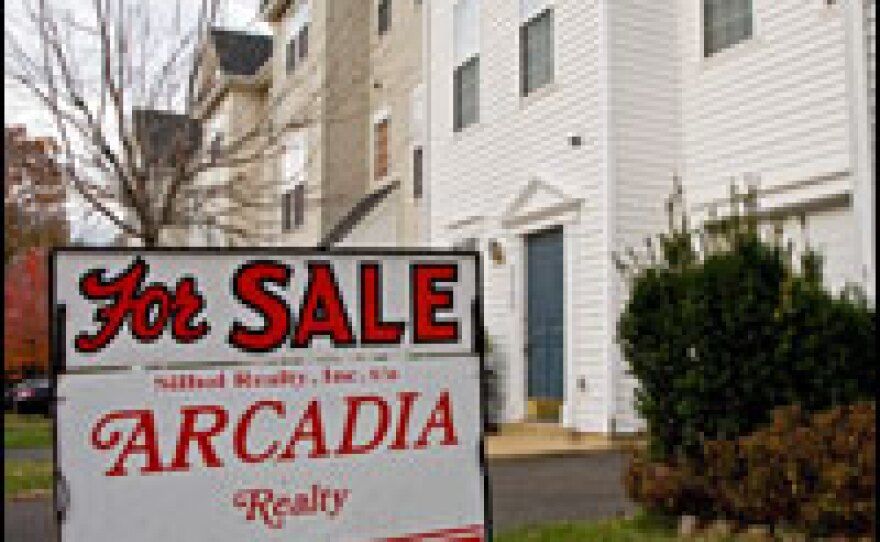
President Bush announced a deal with the mortgage industry Thursday to freeze interest rates for up to five years for borrowers with subprime mortgages. The plan was brokered by the Bush administration, working with groups representing lenders, investors and consumers. Here, a look at how the program works, what it does, and just as important, what it doesn't do.
What does the agreement to help troubled home borrowers do?
It would make it easier for lenders to "freeze" certain mortgage rates that are scheduled to reset between Jan. 1, 2008, and July 31, 2010. The "freeze" will last for five years. The idea is that if borrowers are given a little breathing room, the number of foreclosures can be held down.
Will this "freeze" cover everyone who took out one of these adjustable-rate mortgages?
No. The freeze would apply only to loans taken out between Jan. 1, 2005, and July 30, 2007. It doesn't apply to real estate investors and speculators, or to people whose mortgages have already reset to higher rates.
Instead, it is aimed at a narrow category of borrowers: those who have so far been able to pay their mortgages but face an impending reset that may put them into default. People who fell behind in their mortgages even before their reset are excluded, as are people deemed by their lenders to be able to afford a reset.
That sounds as though borrowers who got in over their heads are rewarded, and more responsible borrowers get punished.
You could look at it that way, and many people do. But the country has already seen a sharp jump in foreclosures, which has hurt economic growth. And with some 1.5 million outstanding mortgages expected to reset next year, many more borrowers are expected to have trouble paying their bills.
Some help will be offered to other borrowers as well. The Bush administration points out that it has proposed new rules that will make it easier for some borrowers to refinance their mortgages, for example, by transferring into loans backed by the Federal Housing Administration, and those changes will apply even to borrowers who've paid their bills on time.
Where can people who are concerned about their mortgages get help?
Well, only people who ask for help will get it. They should call 1-888-995-HOPE (4673) — the number for the Homeownership Preservation Foundation, a nonprofit group that offers free housing advice for homeowners.
How far will this plan really go to reduce the number of foreclosures and clean up the mortgage mess?
The biggest criticism of the plan is that it doesn't go far enough. The Bush administration says 1.2 million people could be eligible for a rate freeze, but Barclays Capital has estimated that only a fraction of those--about 240,000 homeowners--would actually get relief. More will be eligible for refinancing assistance.
Most of the loans that will reset in the next two years were long ago bundled into securities and sold to investors. The value of these securities has already fallen. A freeze in interest rates would reduce the value of these investments even more. So some investors will consider going to court in order to stop the plan to freeze rates. Other investors have decided that fighting the freeze will only lead to more foreclosures — and an increased chance of recession. And that, they have concluded, isn't good for anyone.
Copyright 2022 NPR. To see more, visit https://www.npr.org. 9(MDAzMjM2NDYzMDEyMzc1Njk5NjAxNzY3OQ001))






